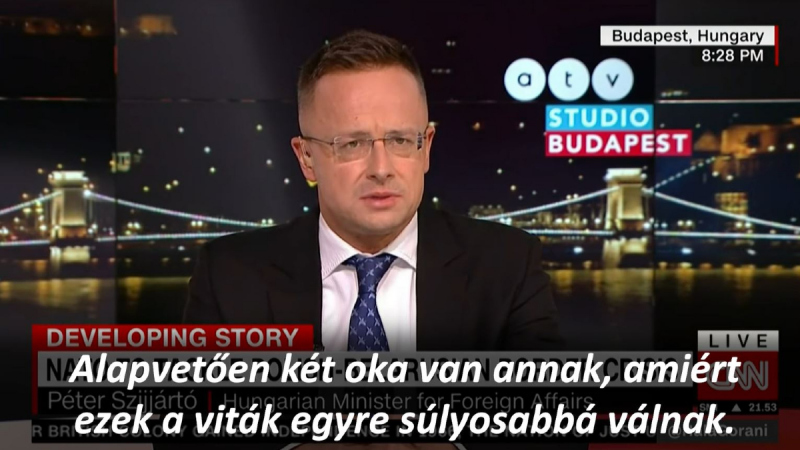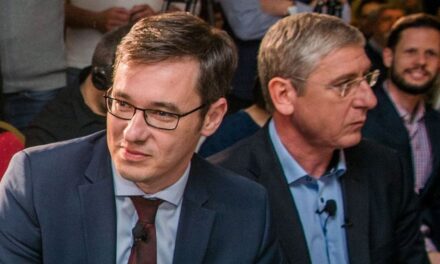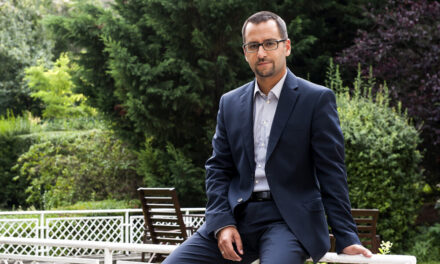The Minister of Foreign Affairs and Trade answered the CNN reporter's questions live.
Péter Szijjártó shared the CNN interview with him on his social media page, writing to the video: "1 CNN interview = 3 questions = 3 false statements." The reporter's first question was about the Covid situation in Hungary, namely what is the reason for the low vaccination rate.
In his answer, Péter Szijjártó explained that the current vaccination rate in our country is 70 percent, and the goal is of course 100 percent vaccination, which
there are no physical obstacles, since there are millions of vaccines waiting to be administered in warehouses,
and in Hungary, anyone can receive the vaccine in a few minutes without registration. The minister reminded:
we are first in the European Union in terms of third vaccinations,
this currently means 35-36%, which is of particular importance due to the appearance of new variants.
Rule of law and LGBTQ
When asked whether the Hungarian government had already responded to the European Commission's letter in which concerns about the rule of law were raised, the minister said: if the European Union has questions, they will certainly respond, but he emphasized that the disputes can basically be traced back to the fact that the Union regarding its future, Hungary represents a minority position which
supports an alliance of strong autonomous member states against a European United States.
In the interview, the recently adopted package of laws, which, according to the reporter's wording, is anti-gay and anti-lesbian was also brought up.
"Why are they members of a club that doesn't seem to want to follow its rules?" – was the question, to which Péter Szijjártó explained:
"We have not passed any anti-gay laws. The Hungarian parliament – which was democratically elected – adopted a law on the protection of children. This law ensures that the sexual education of children is the sole right of parents, and it says nothing about the LGBTQ community, it's a lie, it's fake news."
The full transcript of the conversation can be read below:
Péter Szijjártó: Good evening, thank you very much for the invitation!
Hala Gorani: What is the situation regarding Covid? Your country has a relatively low vaccination rate. What are they doing to get more people vaccinated? I understand they have rejoined the EU program to procure more Pfizer vaccines after it was suspended in May?
Sz. P.: Look, we are currently at 70 percent, but of course we want to reach 100 percent. This is physically possible, considering that we have millions of doses in stock. You don't even need to register to get vaccinated, you just have to walk to a vaccination point and get vaccinated there within a few minutes. This option is open to everyone and we hope to convince more and more people from the remaining 30 percent to get vaccinated, but we are currently number one in the European Union. This is now the booster vaccination, so the third vaccination. About 35-36 percent of those who are eligible for the vaccine have already received the third vaccine, which is becoming increasingly important because of the new variants. We actually acted very quickly in the beginning. We were among the first EU member states to reach the 60 percent vaccination rate, which was very important, as it allowed us to restart our economy, open up the country and get rid of restrictions. Since then, this ratio has increased by another 10 percent, and we hope that it will continue to increase.
HG: Speaking of the EU - they are still very unhappy with your government, as you must know. Some accuse the Orbán government of anti-democratic practices, and as far as I know, the Commission has sent you a letter in which it expects answers to certain questions regarding its concerns about the rule of law. For questions about the use of EU funds, for example, whether they were not used in a way that was not completely transparent. Did you reply to the letter?
Sz. P.: We will definitely answer it, as this would be the course of things in the European Union.
If the European Commission has questions, we will definitely answer. However, our dispute with Brussels and the European Commission goes deeper than that. There are basically two reasons why these disputes are becoming more serious. First of all, the two sides have completely different views on the future of the European Union. Of course, together with certain member states, Brussels wants to create a kind of United States of Europe, where more competences would be transferred to Brussels, thus reducing the competences of the member states, which we are definitely against. And I have to admit that we are in the minority, so those who…
HG: [interrupts]: Yes, they are in…
Sz. P.: ...they want the basis of the European Union to be formed by strong member states, and they want to restore the competences of the member states...
HG: [interjects]: Yes, they're in the minority, and they're actually members of a club, and they don't necessarily follow all the rules of the club. So why would they remain members?
HG [continued]: If, for example, laws are passed that appear to be anti-gay or anti-lesbian, Viktor Orbán, the prime minister, even though he has increasingly close ties with China in terms of business deals, to the point that he even blocked a statement from the EU that would have condemned China , for supporting a tough crackdown on anti-government protests in Hong Kong. Why would they be members of a club whose rules they seem unwilling to follow?
Sz. P.: I believe that we should definitely stick to the facts, otherwise our conversation will turn into a meaningless dialogue. Accusations of this kind have been observed against Hungary for a long time...
HG [interrupting]: What was not true about what I just said?
Sz. P.: I would be very grateful if I could answer part of your question. If you are really curious about our position, I can tell you that we are committed members of the European Union, we want the European Union to be strong, certainly stronger than it is currently, but our position is that this will not be possible with the creation of a "United States of Europe". We need strong member states, because a strong European Union can only be based on strong member states. There is also an extremely serious ideological debate between Brussels and us: we are definitely a right-wing, patriotic, Christian-democratic government, which goes completely against the liberal mainstream and is successful! We understand that this is difficult for Brussels to digest. We have not passed any anti-gay laws in this country, the democratically elected Hungarian parliament has adopted a law on the protection of children, which ensures that the sexual education of children is the exclusive right of parents. It doesn't say anything about the LGBTQ community - it's a lie, fake news.
HG: I understand. Well, opinions differ on the interpretation of the law. I would like to briefly ask one last question about what you said to the Financial Times: according to the newspaper's quote, you said that the United States would interfere, or try to interfere, in the elections due next spring. Do you really think that the Americans would intervene to make your party, which has been in power long enough, lose next year?
Sz.P: Look, this is another classic example of how fake news is spread. Watch the video, which can be found on many sites on the Internet, and what I answered to these questions. They put quotes in my answers that I never said. What I said was this, and I hope I can make it clear here: We live in Central Europe, not on the Moon, not on Mars. In this region, we always had to count on the West and the East, so that both sides wanted to influence the region. Unfortunately, this is what our history is about - we understand history perfectly and have learned the lessons of history. These attempts at influence in this region are ongoing and will continue to be so in the future. And I can say that indeed, there are embassies that openly fund anti-government articles on the Internet, yes, there are embassies that tender money to the so-called independent press, which always speaks against the government. You know, we have secret services that have already detected certain preparations in this area, according to which certain countries, certain entities, certain organizations want to influence the public will in Hungary, even in relation to the elections, but these services, one of which is under my portfolio has a duty to take action against such attempts to interfere, and of course we will do everything in our power to ensure that only the Hungarian people can decide on the future of the country.
HG: Okay, so you believe there are indeed efforts to intervene. The Hungarian Minister of Foreign Affairs, Péter Szijjártó, was my guest. Thank you so much for joining us live from Budapest, Hungary tonight.
Sz. P.: Thank you very much!
Source: Ministry of Foreign Affairs and Trade













